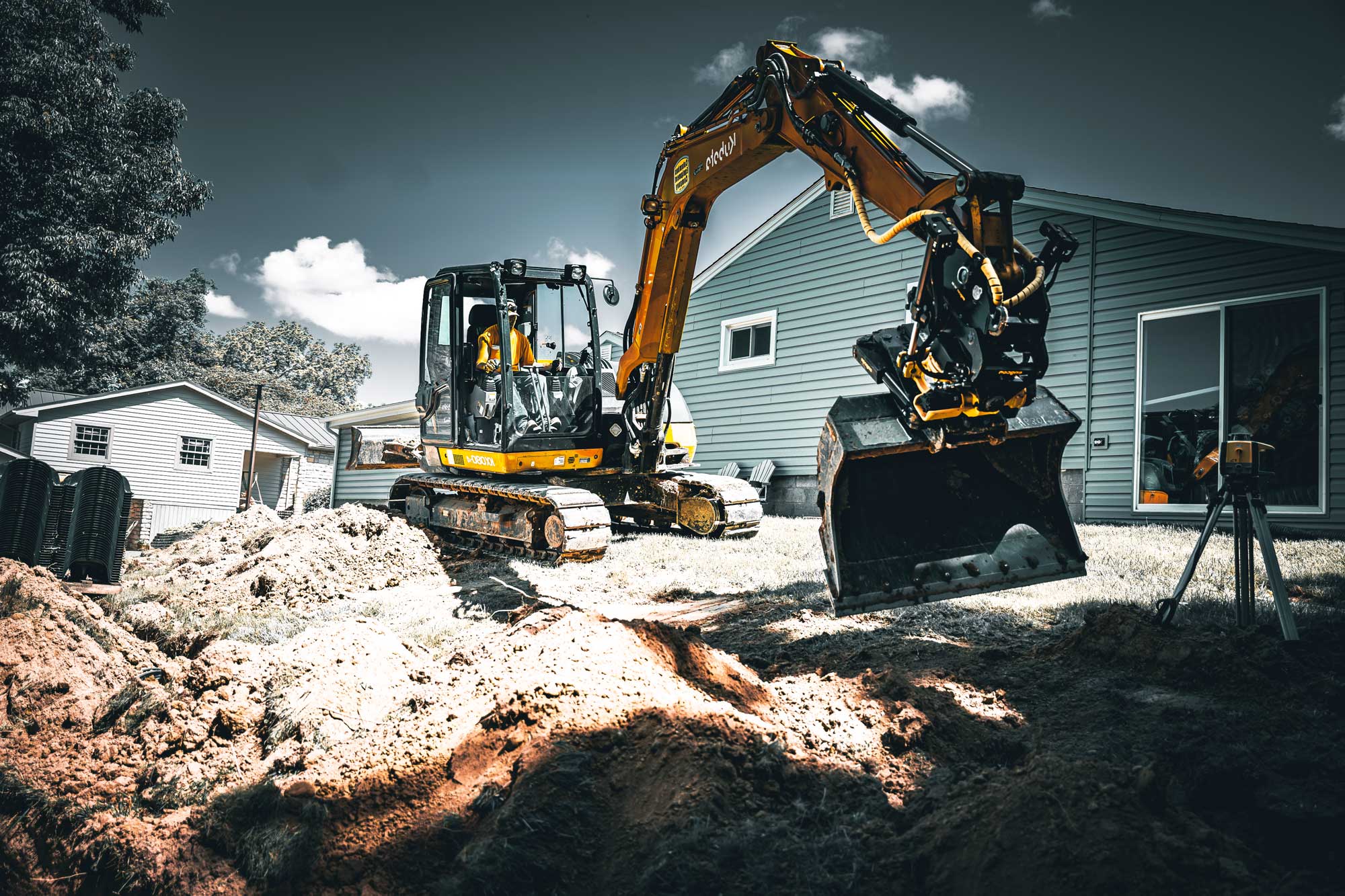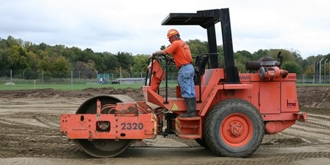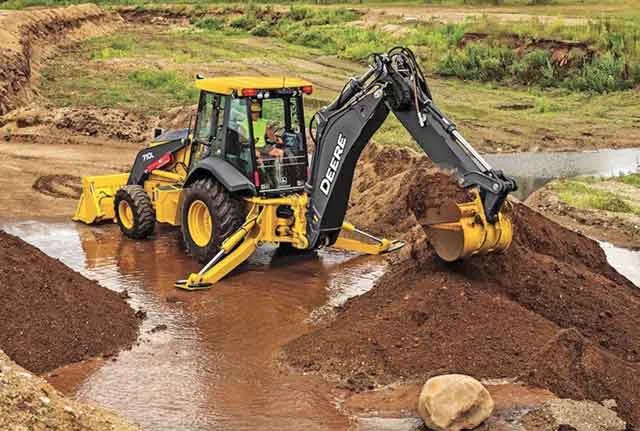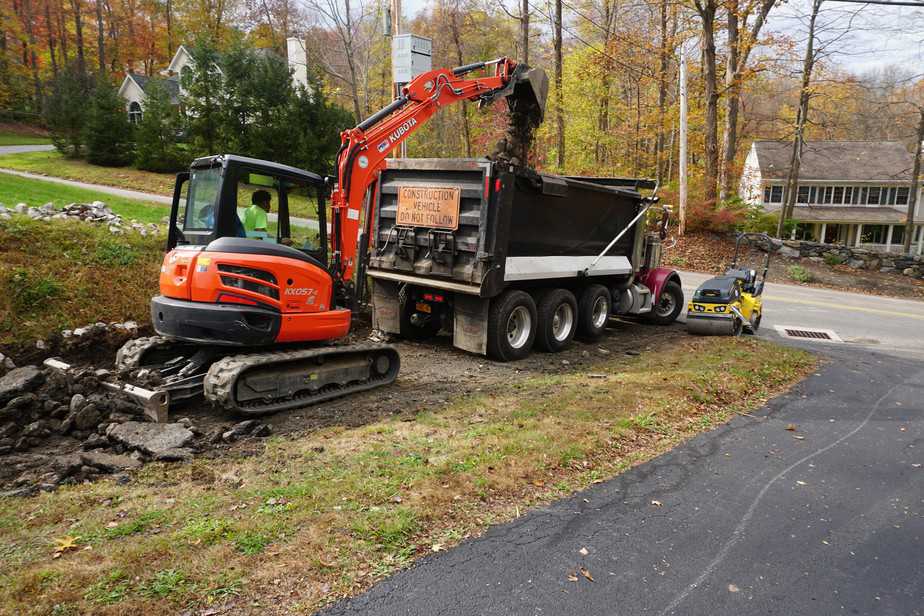Industrial Lancaster Trenching - Trenching Solutions for Companies in Lancaster
Extensive Exploration: The Scientific Research Behind Superior Excavation Practices
The world of excavation methods is a domain where science links with craftsmanship to discover the secrets concealed beneath the earth's surface. From ancient hand tools to modern hydraulic excavators, the evolution of excavation strategies has actually been a testimony to human ingenuity and technological advancements. Nonetheless, what absolutely sets premium excavation techniques apart is a deep understanding of geological concepts, coupled with the use of innovative tools and methodologies. By exploring the scientific research behind these methods, we can uncover the keys that lie underneath our feet and appreciate the precision and know-how that go into every dig.
Evolution of Excavation Methods
Throughout background, the advancement of excavation methods has played an essential duty in advancing building techniques and archaeological explorations. From the simple devices used by our ancestors to the innovative equipment employed in modern times, the progression of excavation approaches has substantially transformed exactly how we come close to numerous projects.
In old times, manual work with fundamental devices such as shovels, pickaxes, and wheelbarrows was the main approach of excavation. This labor-intensive procedure limited the deepness and extent of excavations, often resulting in sluggish development and limited accessibility to certain websites. However, as human beings progressed, so did the tools and methods used for excavation.
The Industrial Revolution marked a transforming factor in excavation exercise with the introduction of steam-powered machinery. This advancement revolutionized the field, enabling faster and a lot more considerable excavations. In modern times, technology plays a critical function in excavation, with improvements like general practitioner systems, drones, and 3D scanning improving accuracy and performance in the field. The evolution of excavation techniques continues to form the means we construct, discover, and recognize the globe around us.
Role of Modern Technology in Excavation

The assimilation of innovative technology has actually fundamentally changed the field of excavation, enhancing accuracy and effectiveness to extraordinary degrees. One of the vital technical developments that has actually significantly influenced excavation practices is the application of GPS systems. These systems permit exact mapping of excavation sites, allowing drivers to accurately find underground utilities and frameworks. Additionally, the usage of telematics in excavation equipment has actually enabled real-time tracking of device efficiency, leading to positive maintenance and enhanced functional performance.
Furthermore, the development of 3D modeling and simulation software program has streamlined the planning process for excavation jobs. Engineers and operators can currently visualize the entire excavation process prior to beginning, optimizing and identifying potential challenges process. Combined with this, the application of drones in excavation activities has helped with aerial studies, volumetric dimensions, and website examinations with unrivaled rate and precision.
Geological Principles in Excavation
An understanding of geological concepts is necessary for guaranteeing the structural honesty and stability of excavation sites. Geological aspects play a vital duty in identifying the feasibility and security check that of excavation projects.
In addition, the geological structure of the area, including faults, fractures, and rock developments, should be meticulously examined to recognize potential threats and difficulties. Excavating near mistake lines or unsteady rock formations sites can result in instability and prospective threats. By carrying out detailed geological surveys and evaluation, engineers and excavators can establish strategies to alleviate dangers and make certain the successful conclusion of excavation tasks. Inevitably, incorporating geological concepts right into excavation practices is essential for accomplishing secure, efficient, and lasting outcomes.

Newest Tools for Excavation
In the world of excavation techniques, contemporary developments in tools have actually reinvented the efficiency and accuracy of excavation processes. These drones can offer detailed airborne surveys of excavation websites, providing real-time information on topography and prospective hazards.
An additional cutting-edge tool gaining popularity is the implementation of 3D printing modern technology for producing custom excavation devices. This allows for the manufacturing of specialized tools that are customized to the certain requirements of a task, enhancing effectiveness and lowering downtime.
Moreover, developments in products science have actually led to the growth of stronger and a lot more durable excavation devices. lancaster excavation. Tungsten carbide-tipped excavator accessories, for instance, offer remarkable efficiency in challenging ground problems, enhancing productivity on-site
Scientific research's Effect on Excavation Practices

In addition, innovations in products science have actually caused the creation of more powerful, a lot more resilient excavation devices and tools. The usage of composite materials in miners and shovels has actually enhanced their efficiency and longevity, inevitably enhancing productivity on excavation websites. Additionally, scientific research on soil technicians and geotechnical engineering has given important understandings into dirt behavior, enabling excavation specialists to make educated choices concerning excavation approaches and soil stabilization strategies. In general, scientific research remains to drive technology and improvement in excavation methods, making excavation tasks a lot more reliable, affordable, and lasting.

Verdict
In conclusion, the evolution of excavation techniques has been considerably affected by improvements in modern technology and a much deeper understanding of geological principles. The latest tools and equipment used in excavation have improved efficiency and precision in the area. The application of clinical understanding has actually dramatically improved excavation practices, bring about a lot more lasting and efficient methods for digging deep into different sorts of materials.
In the world of excavation practices, contemporary technologies in devices have actually revolutionized the efficiency and precision of excavation processes. By leveraging clinical concepts, the excavation industry has been able to considerably boost effectiveness, precision, and security in excavation processes. GPR allows excavation teams to non-invasively check and map subsurface structures, utilities, and potential risks, enabling them to prepare excavation jobs with better accuracy and minimized danger of accidents.
In addition, clinical study on dirt technicians and geotechnical design has provided beneficial understandings into soil habits, enabling excavation experts to make informed decisions pertaining to excavation techniques and soil stabilization methods. In general, science proceeds to drive advancement and enhancement in excavation practices, making excavation jobs much more reliable, cost-effective, and lasting.